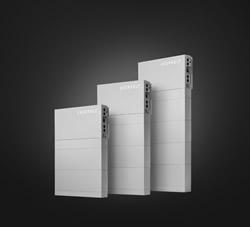U.S. DOE Selects Asimily for Clean Energy Cybersecurity Accelerator
The program, managed by the National Renewable Energy Laboratory (NREL), focuses on validating solutions that identify OT, IoT, and IT assets connected to a utility's infrastructure.
Asimily, a risk management platform for IoMT, OT and IoT devices, today announced it has been selected to participate in the second cohort of the U.S. Department of Energy's (DOE's) Clean Energy Cybersecurity AcceleratorTM (CECA). The program, managed by DOE's National Renewable Energy Laboratory (NREL), evaluates novel solutions that actively identify all assets connected to a utility's infrastructure, both physically and virtually.
Asimily will take part in an acceleration period, through which its platform will be evaluated in NREL's Advanced Research on Integrated Energy Systems (ARIES) Cyber Range—an advanced simulation environment with real-time situation awareness and visualization.
"Increasing cybersecurity threats to utilities make it essential that this critical infrastructure is well protected," said Shankar Somasundaram, CEO and Founder, Asimily. "With the information we'll learn from deploying Asimily at ARIES, we expect to further accelerate our platform's capabilities to identify OT and IoT assets - including any security vulnerabilities - to protect against ever more capable adversaries. Asimily has developed technology to identify and enrich data about OT using network traffic analysis enhanced by correlation with other sources and methods. At ARIES, uniquely, we can test our capabilities vs. the true, known inventory, allowing us to prove or get closer to the ultimate goal - 100% accurate identification of all OT."
Working with its partners, CECA identifies urgent security gaps in the modern electric grid and supports the validation of emerging technologies that can help address those risks. Selected participants benefit from access to the National Renewable Energy Laboratory's (NREL's) unique evaluation capabilities, where solutions will undergo rigorous testing.
Results from Cohort 2 technical assessments will culminate in a public report documenting the research process and outcomes. Asimily, alongside the other Cohort 2 participants, will receive competitive experience and a professional third-party evaluation of its technology.
"We are thrilled to be working with Cohort 2 participants," said Dane Christensen, CECA program lead at NREL. "The selected technologies offer solutions for solving hidden risks on utility networks due to incomplete system visibility and device security and configuration. Through independent third-party assessment, CECA is helping to accelerate needed technologies to market to help raise the baseline security of the grid."
Featured in the White House National Cybersecurity Strategy, CECA is furthering federal goals to secure our clean energy future by accelerating the adoption of cybersecurity solutions that protect renewable energy systems.
CECA is managed by NREL and sponsored by DOE's Office of Cybersecurity, Energy Security, and Emergency Response and utility partners in collaboration with DOE's Office of Energy Efficiency and Renewable Energy.
Featured Product

